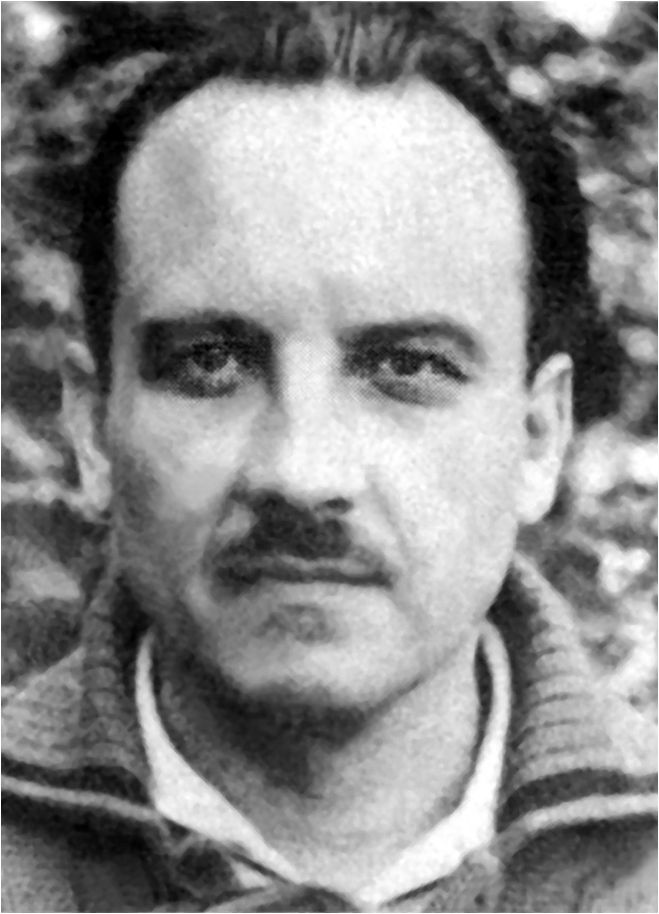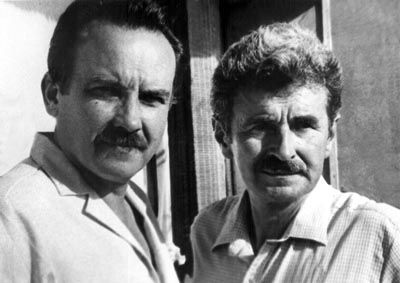Zinoviy Antonyuk was born on December 24, 1933, in the village of Depotychi (then in the Lublin Voivodeship, Poland) to a family of Ukrainian peasants, which from the end of 1939 lived in Chełm and became a working-class family. After finishing elementary school at the Chełm Ukrainian Gymnasium in 1944, he passed the entrance exams to the gymnasium, but with the departure of the teaching staff further West, the gymnasium ceased to exist. At the end of August, the Antonyuk family moved to Ukraine. They lived in Lutsk for a year, and from the autumn of 1945—in Lviv.

In 1952, he graduated from the Lviv College of Railway Transport. From 1953 to 1958, he studied at the Faculty of Mechanics of the Lviv Polytechnic Institute, majoring in “economics and organization of production,” and from 1960 to 1964—in a correspondence postgraduate program at the same institute. After working for a year as an engineer-economist at the Lviv Instrument-Making Plant, he moved to the research department of the Lviv Polytechnic (1959–60). From May 1960, he lived in Kyiv, and until his arrest in 1972, he worked in various engineering positions at the All-Union Scientific Research and Design Institute for Oil Refining and Petrochemicals (NVO “MASMA”).
In 1962, through Alla Horska, he met Ivan Svitlychny, who had a huge influence on Antonyuk. “This is how I first understood,” Antonyuk later wrote, “that true, not ostentatious, patriotism is always quiet, always serious, and always civic, not narrowly ethnic.” Antonyuk participated in the reproduction and distribution of samvydav. As a member of the institute’s trade union committee, he facilitated the regular holding of city-wide evenings of young poetry in the institute's assembly hall. In 1964, through the party committees of his institute and the Institute of History of the Academy of Sciences, he initiated the creation of a permanent historical lecture series at his institute, which was led by the famous historian M. Braichevsky. At Ivan Svitlychny’s request, he translated several major articles on the history of Polish-Ukrainian relations from Polish into Ukrainian. The 1965 arrests among the Ukrainian intelligentsia, especially the first arrest of Svitlychny, shocked Antonyuk, but it spurred him to even greater public activity. “But the main thing was samvydav. It was important to convince the authorities that they had chosen the wrong people, that samvydav activity continued even without those arrested.” Zinoviy Antonyuk was involved in receiving information from the political zones and its further transmission abroad along with samvydav, including the “Ukrainian Herald,” where everything was later published in Ukrainian and foreign-language periodicals and broadcast on Radio “Liberty.”
In January 1972, during the large-scale arrests of the Ukrainian intelligentsia, Antonyuk was also arrested. The trial, formally open but in fact closed to friends, took place from August 8 to 15, 1972. Zinoviy was charged under Article 62, Part 1 of the Criminal Code of the UkrSSR (“anti-Soviet agitation and propaganda”). The sentence: 7 years in a strict-regime labor camp and 3 years of exile.

Zinoviy Antonyuk and Yevhen Sverstyuk
Antonyuk served his term in the 35th zone of the Perm camps. He took an active part in numerous hunger strikes and other protest actions and, most importantly, became one of the main figures in ensuring the illegal transfer of information to the outside world—just as he had before his arrest, receiving information from the zones "outside," retyping it, and passing it on. Zinoviy copied, in a tiny cursive script, most of the reports about the situation in the camp, prisoners’ protest statements, and other materials. There is a version that Andrei Sakharov once showed the “kites” made by Antonyuk to foreign correspondents, who then published copies, from which the KGB identified the creator. However, Antonyuk himself believed he was "betrayed" by an informer from the zone, because there were repeated attempts, based on precise information about the time and method of making the "kites," to catch him "in the act." Zinoviy was sentenced to 3 years of imprisonment in the Vladimir Prison. In July 1978, having served his prison sentence, Antonyuk returned to the 35th camp, where he was diagnosed with tuberculosis. A medical commission decided to send Zinoviy to a specialized hospital in Leningrad, but this was never done.
Zinoviy Antonyuk is one of the authors (along with Y. Orlov, V. Marchenko, P. Plumpa, M. Kiirend) of the famous Moscow Helsinki Group document “On the Situation of Prisoners in the Camps of the USSR” (1978).
On January 18, 1979, Antonyuk arrived at his place of exile—the town of Bodaibo in the Irkutsk region. When being hired for a job, a medical commission discovered he had pulmonary tuberculosis. From the local tuberculosis dispensary, Zinoviy was later sent to the regional hospital for long-term treatment, where he was visited by fellow exile Vyacheslav Chornovil. But when Antonyuk refused to comply with the doctors' insistent “advice” not to communicate or correspond with certain people, whom he was supposed to guess himself, he was discharged and sent back to Bodaibo.
After serving his exile, Zinoviy Antonyuk returned to Kyiv in December 1981. He worked as a rate-setter at the "Chervonyi Humovyk" (Red Rubber-Worker) factory. In 1982, he was convicted on a fabricated case on charges of "parasitism" (Article 214, Part 1 of the UkrSSR Criminal Code) to 1 year of imprisonment in a strict-regime zone: he served 6 months in Bila Tserkva (zone 35) and 6 months in Kharkiv (zone 43). From 1983 to 1993, he worked as a mechanic at the F. Dzerzhinsky Kyiv Repair Plant for Electric Transport.
In 1990, Antonyuk was elected a deputy of the Kyiv City Council. From 1992 to 1996, he was a member of the commission on restoring the rights of the rehabilitated under the Kyiv City Council. From December 1992 to March 2003, he was co-chairman of the public council of the Ukrainian-American Bureau for the Protection of Human Rights; he was a member of the editorial board of the information-analytical bulletin “Human Rights in Ukraine”; and an expert of the International Renaissance Foundation for the "Civil Society" program. Valuing his own independence above all, Zinoviy refused all state awards. He is the author of numerous articles on human rights, public consciousness, and spiritual culture. He lived in Kyiv, where he died on April 28, 2020.
In “Memories of Ivan Svitlychny,” Antonyuk wrote: “Ukraine struggled to realize the need to weave its liberation struggles into the global context of the universal idea of human rights... I know from my own experience that only meeting Ivan Svitlychny and Semen Gluzman in the 35th zone helped me finally dot the 'i's and break away from group consciousness in my perception of the world and to be cured of thinking within the framework of ethnographism, which still gives me a constant feeling of those years as the best years of my life... But even today Ukraine has poorly assimilated the idea of the self-sufficiency of the individual with their inherent unconditional freedom, as well as the value of individual freedom in itself, the freedom of a person who adheres to clear moral maxims...”
Bibliography
Antonyuk, Z. “Pravozakhyst v Ukraïni” [“Human Rights Defense in Ukraine”]. // Prava liudyny v Ukraïni [Human Rights in Ukraine], 1994, issue 4.
Antonyuk, Z. “Vstupne slovo na publichnii protseduri rozhliadu pytannia pro prysudzhennia premiï im. Valeriia Marchenka za 1993-1994 rik” [“Introductory speech at the public procedure for considering the award of the Valeriy Marchenko Prize for 1993-1994”]. // Prava liudyny v Ukraïni, 1994, issue 10.
Antonyuk, Z. “Relihiia v suspilstvi: mozhlyvosti vzaiemnoho reformuvannia cherez pravo vidrizniatysia, tobto zberihaty indyvidualnist?” [“Religion in Society: The Possibilities of Mutual Reform Through the Right to Differ, i.e., to Preserve Individuality?”]. // Prava liudyny v Ukraïni, 1995, issue 13.
Antonyuk, Z. “Pro chystotu i prostotu” [“On Purity and Simplicity”]. // Suchasnist, 1996, No. 5. — pp. 52-65.
Antonyuk, Z. “Znaty, shchob uvlasnyty” [“To Know in Order to Own”]. // Prava liudyny v Ukraïni, 1996, issue 16.
Antonyuk, Z., Gluzman, S., Marynovych, M. Lysty z voli [Letters from Freedom]. – Kyiv: Sfera, 1999.
Antonyuk, Z. “‘Yak ne ya — todi khto?’” [“‘If not me—then who?’”]. // Dobrookyi. Spohady pro Ivana Svitlychnoho [The Kind-Eyed Man. Memories of Ivan Svitlychny] — Kyiv: CHAS, 1998. — pp. 247-256.
Antonyuk, Z. Refleksiï pravozakhystu [Reflections on Human Rights Defense]. – Kharkiv: Prava liudyny, 2019. – 317 p.
Based on material by Volodymyr Kaplun, Kharkiv Human Rights Protection Group